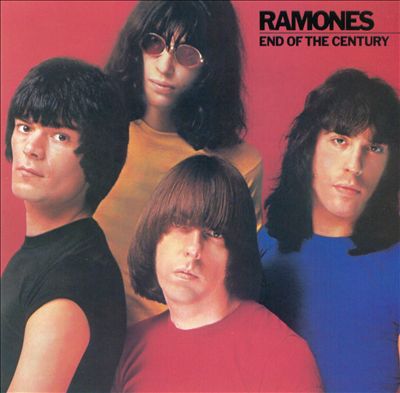Producer Phil Spector puts his touch on classic LP by punk legends
The Ramones were New York’s signature punk-rock band when the genre emerged as an upstart alternative to disco and art/prog rock during the late 1970s. Punk had its roots in England with legendary groups such as The Clash and the Sex Pistols. The Clash appealed to both critics and fans because its style was brash and fresh while still taking rock ‘n’ roll back to its roots.
The Ramones emerged as the face of East Coast punk, while Los Angeles-based X ruled the West. All of these bands shared similarities, but punk rock, like existentialism, can’t really be pigeonholed because of its rebellious nature and desire to exhibit nonconformity to the highest degree.
Both the Ramones and The Clash achieved commercial success, partly because bands’ music caught on with mainstream fans and partly because they evolved with the times, much like The Beatles, The Rolling Stones and Led Zeppelin had done previously. In 1980, experimenting with different sounds in an effort to expand its fanbase and enlisting legendary producer Phil Spector to aid in that cause, the Ramones released “End of the Century.”
After emerging as a prominent force in the control room in soul music in the early ‘60s, Spector had gone on to produce The Beatles’ “Let It Be,” George Harrison’s “All Things Must Pass” and multiple solo albums by John Lennon, lending his signature touch to those works. Along with keyboardist Billy Preston, he also had been credited with keeping the Fab Four together long enough to complete their swan song.
“End of the Century” came out after the decade of the ‘70s had wound down, but the LP recalled a period even further back. “Do You Remember Rock ‘n’ Roll Radio?” spoke to a more innocent time, as did “Rock ‘n’ Roll High School,” named after the 1979 film that had featured the Ramones. Like “Grease,” “American Graffiti” and “The Hollywood Knights,” it was one of several campy, musically themed movies to have defined that era.
The album met with mixed reviews, largely because Spector’s involvement and his overt flourishes turned off punk purists. For instance, although it helped to hook listeners, there was the heavy use of organ on the aforementioned opening cut “Do You Remember Rock ‘n’ Roll Radio?” The producer’s mark can be heard throughout the record, though the band didn’t totally abandon its brash punk style, which at least is present and accounted for on “I’m Affected.”
Spector’s petulance was well-known long before he worked with the Ramones. Among many, many other violent incidents that happened throughout his life (which culminated in a murder conviction upon retrial in 2009), he reportedly threatened to kill drummer Ringo Starr during the “Let It Be” sessions and sometime later also allegedly threated Lennon’s life.
That mean streak continued with the Ramones, as a difference in styles – the band usually worked at a frenetic pace, rapidly knocking out albums while Spector was famously meticulous, often trying to find the right sound for an individual chord for hours at a time – resulted in conflict, with the producer reportedly holding the band hostage in the studio at gunpoint.
“End of the Century” represented a new direction for the Ramones, which was a double-edged sword. It was a creative and successful effort, but it also represented a turn-off to the band’s core fanbase. Still, the album achieved what punk rock aims to do: take rock ‘n’ roll back to its roots while taking risks. But the evolution of the group wasn’t necessarily a bad thing; looking back, given the limb on which the band went out and the results it achieved, the album ranks as one of its best works.








